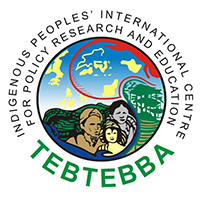Indigenous Peoples Call for Quality and Culturally Appropriate Education and Capacity Development
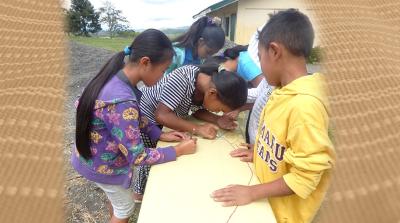
Doris Borna Mae Esteban 08 February 2021
Indigenous peoples in the Philippines call for quality and culturally appropriate education and capacity development during the fourth Dayalogo that was virtually conducted on 28 January 2021 at 9AM to 12NN, via Zoom Meeting.
“Ang edukasyon ay dapat angkop sa kultura (Education must be culturally appropriate).”
Timuey Ronaldo ‘Jojo’ Ambangan of Erumanen ne Menuvu stressed the necessity of providing quality and culturally appropriate education especially within indigenous communities. He narrated how indigenous youth frequently get confused by the formal school lessons that are not context-specific and in line with their traditional systems and practices. Likewise, Ambangan opined that it will be better to have teachers who belong to the same indigenous community not only to further ensure culturally appropriate education but also to allow accountability, mentioning that some non-indigenous teachers who discriminate against their students could not be penalized through the existing customary justice system.
Through the Indigenous Navigator Initiative Philippines, the Dayalogo 4, “Supporting Indigenous Peoples’ Education and Capacity Development,” was virtually conducted on 28 January 2021 at 9AM to 1 PM, via Zoom Meeting. One hundred seventy-eight (178) participants from various indigenous peoples’ organizations, indigenous political structures, and civil society support groups were joined by representatives from the different government line agencies, namely the Cooperative Development Authority (CDA), the Department of Education (DepEd), the Department of Finance (DOF), the Department of Trade and Industry (DTI), the National Youth Commission (NYC), the Department of Interior and Local Government (DILG), the National Commission on Indigenous Peoples (NCIP), and the Technical Education and Skills Development Authority (TESDA). The event was also livestreamed via Tebtebba Facebook Live.
Aside from stressing the relevance of implementing culturally appropriate education, several indigenous leaders shared the initiatives of their indigenous peoples’ organizations and communities in providing basic education that is accessible, appropriate, and culturally responsive. Billy Pobre of Erumanen ne Menuvu Kamal and Norma Gonos, working for Limpong na Tutong ng Mandaya na Kabubayan sang Calapagan na Asosasyon (Calapagan Mandaya Women Association), presented their engagement in orthography projects that collate the spelling and pronunciation of specific indigenous words. Pobre and Gonos claim that these orthographies are essential teaching tools and that these are already integrated and utilized in their respective indigenous communities, as well. These orthography projects are conducted with support from the European Union through the Indigenous Navigator Initiative, co-implemented by Tebtebba with its community partners.
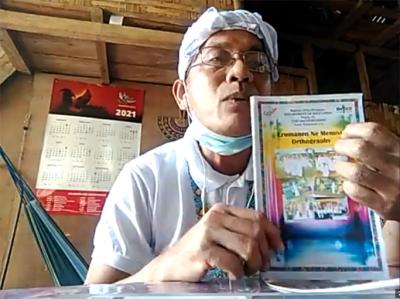
In the same way, several indigenous leaders shared the results of their efforts towards building their own community learning centers. Becky Barrios of Panaghiusa Alang Sa Kaugalingnan Ug Kalingkawasan, Inc. (PASAKK) detailed that their community schools were able to teach 4,192 schoolchildren from 1994 to present. Out of this number, four (4) are already graduates of four-year courses and thirteen (13) got to finish two-year courses. Rande Bayate of Silingang Dapit sa Sidlakang Mindanao (SILDAP) posited that 1,566 indigenous children benefitted from similar community schools built by their organization.
Consequently, Timuay Labi Leticio Datuwata of Timuay Justice and Governance (TJG) called for improved teaching facilities and adequate, regular teachers in the different community learning schools in Maguindanao, if possible hiring teachers of indigenous descent. Other indigenous leaders requested for a more streamlined process in securing various permits and requirements as they explained the far distance of their communities from the metropolis where relevant government line offices were located. They called for an accessible way for indigenous youth to secure a National Certificate (NC) II, a Certificate of Competency (COC) provided by TESDA especially for relevant, timely skills like driving, among others.
"Ang mga scholarships na para sa mga katutubo ay dapat ibigay sa kanila (Scholarship grants for indigenous peoples must be rightly accorded to them)," asserted Jennevie Cornelio of TJG as she asked the NCIP to provide the said grants to its rightful recipients, the indigenous youth. In addition, Zenia Madino of Naundep ni Napahnuhan ni Kalanguya (NNK) spoke of the importance of the schools of living tradition (SLT) and the need to further sustain their existence as elders get to transmit their indigenous knowledge systems and practices through these centers.
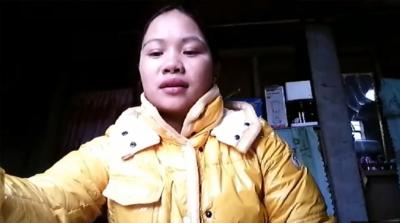
Hany Love Sawit, a young representative of Manobo Lumadnong Panaghiusa (MALUPA), shared about the prevalent discrimination experienced by indigenous youth in mainstream schools. “Ito po ang nagiging dahilan kung bakit nawawalan ng kumpyansa [sa kanilang sarili] lalo na sa pagpasok sa eskwelahan, maging sa trabaho, ang mga katutubong kabataan (This is a reason why many indigenous youths lose their self-confidence especially in school or even at work), Sawit said. “Sana po ay maiparamdam naman sa mga kabataang katutubo na kabilang at karapat-dapat din sila tulad ng iba (It is essential to make the indigenous youth feel accepted and respected just like everyone else), she added.
"Ang mga community-based initiatives ay malaking tulong sa pag-improve ng language variation efforts ng DepED (These community-based initiatives are a big help to the improvement of the language variation efforts of the DepEd)," pointed out Marie Lourie Victor of the Indigenous Peoples Education Office (IPsEO) under DepEd. She commended the indigenous leaders for their efforts towards the creation of their own orthographies, specifically those of the Erumanen ne Menuvu and Mandaya people, as she agreed that education can be made further effective when it is culturally appropriate. "The language diversity is a challenge in the country. The approach should really be different and [context-] specific," Victor added.
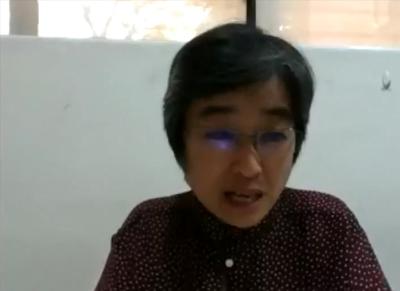
“We are very thankful for the robust participation of the different national agencies and indigenous peoples’ organizations in these series of dialogues as we all strive to fulfill our mission of achieving inclusive and sustainable peace as well as appropriate and adequate development for indigenous peoples,” mentioned Vicky Tauli-Corpuz, former Special Rapporteur on the Rights of Indigenous Peoples and Tebtebba Executive Director, in her opening remarks for the dialogue. Like many of the event’s participants, she also stressed the importance of providing quality and culturally appropriate education.
Likewise, Tauli-Corpuz pointed out the necessity of including and perpetuating indigenous languages. “In line with UNESCO’s declaration of 2019 as the International Year of Indigenous Languages and this year’s preparation for the Decade of Indigenous Languages [on 2022-2032], it is crucial to look into how indigenous languages are integrated into the different programs work,” she said.
“Sa pagdalo sa mga dayalogo na ito, mas nabubuksan ang aming isipan hindi lamang sa pagtutok sa mga polisiya ng gobyerno kundi sa mga usapin na nanggagaling po mismo sa mga organisasyon tulad ng Tebtebba at mga kapatid na mga katutubo na nanggagaling pa po mula sa mga malalayong parte ng Pilipinas (Through these dialogues, our minds are opened further, not only on focusing on the different government policies but also on the different discussions directly from organizations like Tebtebba and our indigenous brothers and sisters who are located in various far-flung areas in the Philippines),” shared Pablo de Castro, Chief of the Local Government Relations Division under the Bureau of Local Government Supervision (BLGS) of the Department of Interior and Local Government (DILG).
Similarly, Jesus Nathaniel Gonzales of the Department of Finance (DOF), representing the Bangsamoro Government Intergovernmental Relations Body (IGRB) commented, “Andito kami upang makinig sa mga hinaing ng mga indigenous peoples… sana ang mga problema ay matugunan na ng iba’t ibang ahensya at ng IGRB (We are here to listen to the issues and concerns of the indigenous peoples... We hope that these problems get resolved by the different government agencies and the IGRB).”
The Dayalogo series is a Tebtebba initiative that aims to assist sustained, collaborative, and constructive dialogues between Philippine indigenous peoples and various government agencies towards a better implementation of the Indigenous Peoples’ Rights Act and the United Nations Declaration on the Rights of Indigenous Peoples, as well as the attainment of the Sustainable Development Goals. It was made possible through the assistance of the European Union through the Indigenous Navigator Initiative, and the Pawanka Fund.
